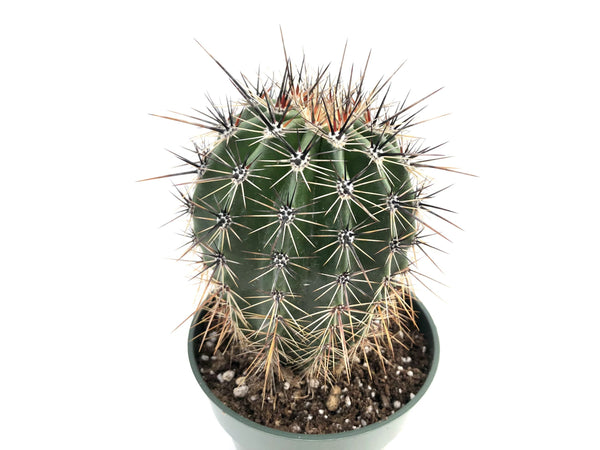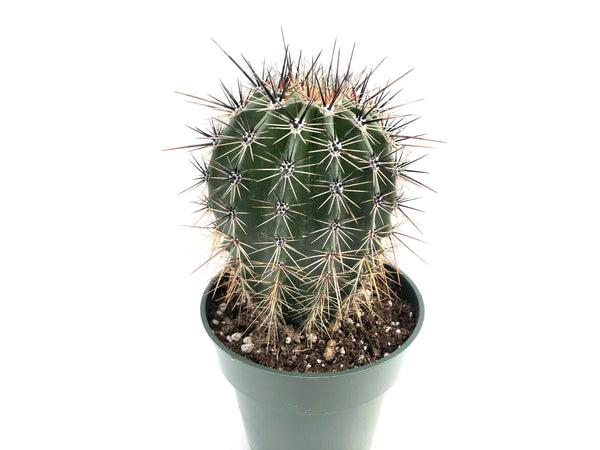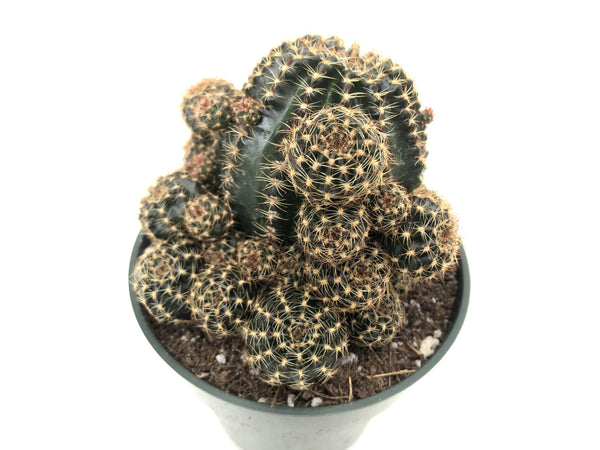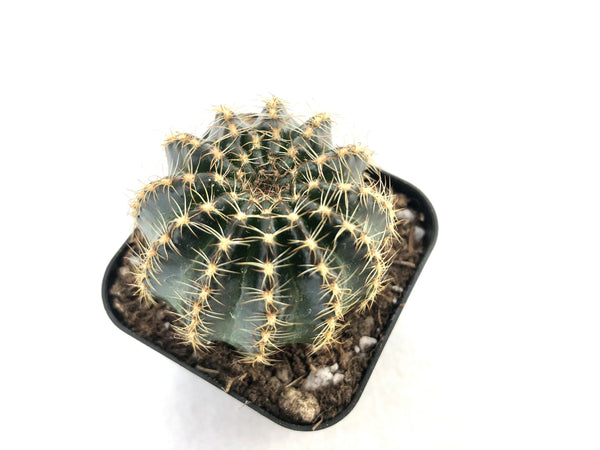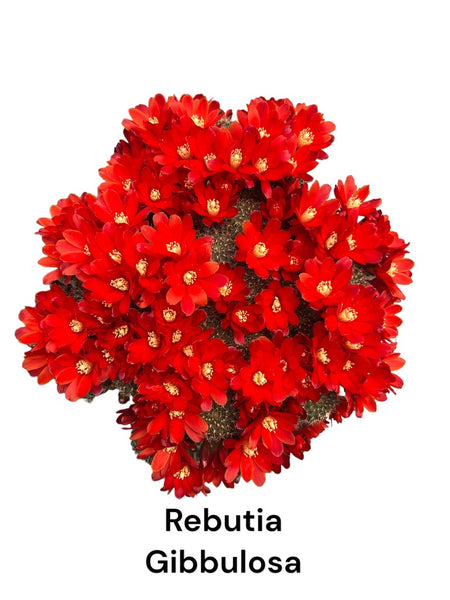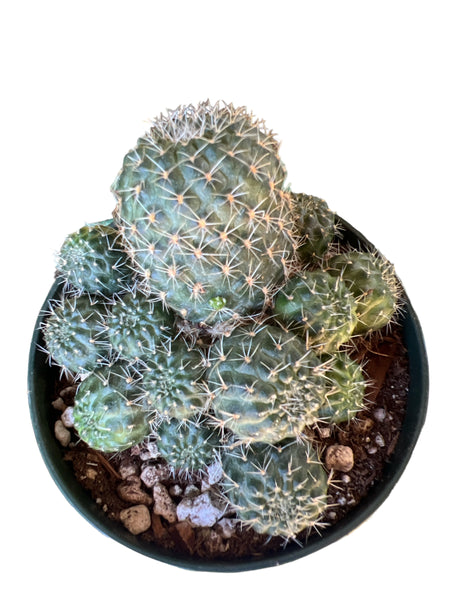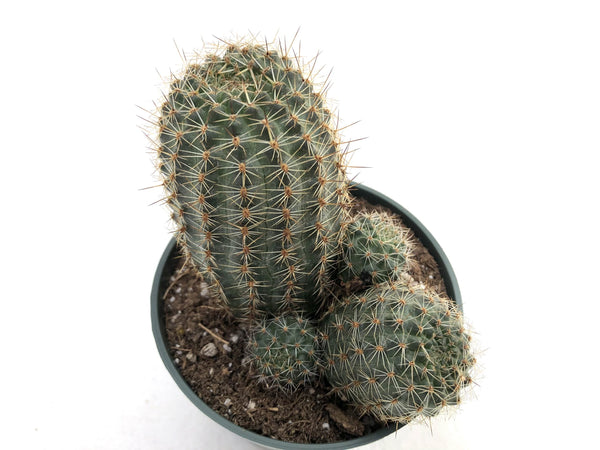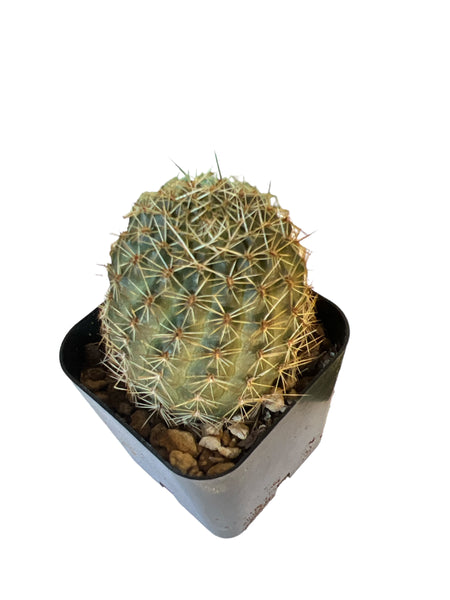Gymnocalycium mesopotamicum
$4.99
Gymnocalycium mesopotamicum is a compact and attractive cactus species native to Argentina, particularly the Corrientes and Mercedes regions. It is prized by collectors for its neat form, prolific offsets, and striking flowers.
Botanical Description:
- Growth Habit: Typically solitary in habitat but freely branching in cultivation, forming pleasing clumps. Mature plants are globular to slightly flattened, with an umbilicate depression at the apex.
- Size: Usually 1.2–2.5 cm tall and up to 4 cm in diameter in habitat, but can grow larger in cultivation—up to 10–15 cm tall and 20 cm in diameter.
- Ribs: 7–9 low, rounded ribs with transverse grooves.
- Areoles: Wide, oval-elongated, slightly sunken at the top of the tubercle.
- Spines: No central spines. Radial spines (9–12 per areole) are bristle-like, flexible, adpressed, reddish-brown when young, turning greyish or pink-tinged with age.
Flowers:
- Flowers: Large, pure white blooms up to 5.5 cm long and 6.5 cm in diameter. Outer perianth segments are pinkish with darker brownish mid-stripes; inner segments are pure white and lanceolate. The throat is reddish, and the calyx is bare and scaly.
Cultivation & Care:
- Light: Thrives in bright, indirect sunlight; tolerates direct sun in cooler climates but prefers some shade during the hottest part of the day.
- Soil: Requires well-draining cactus mix, ideally with 70–80% mineral grit (coarse sand, pumice, or perlite).
- Watering: Moderate watering in summer; keep dry in winter to prevent rot.
- Temperature: Hardy to -12°C for short periods, but best kept above freezing for safe cultivation.
- Propagation: Easily propagated by seeds or offsets. Offsets can be removed and replanted.









